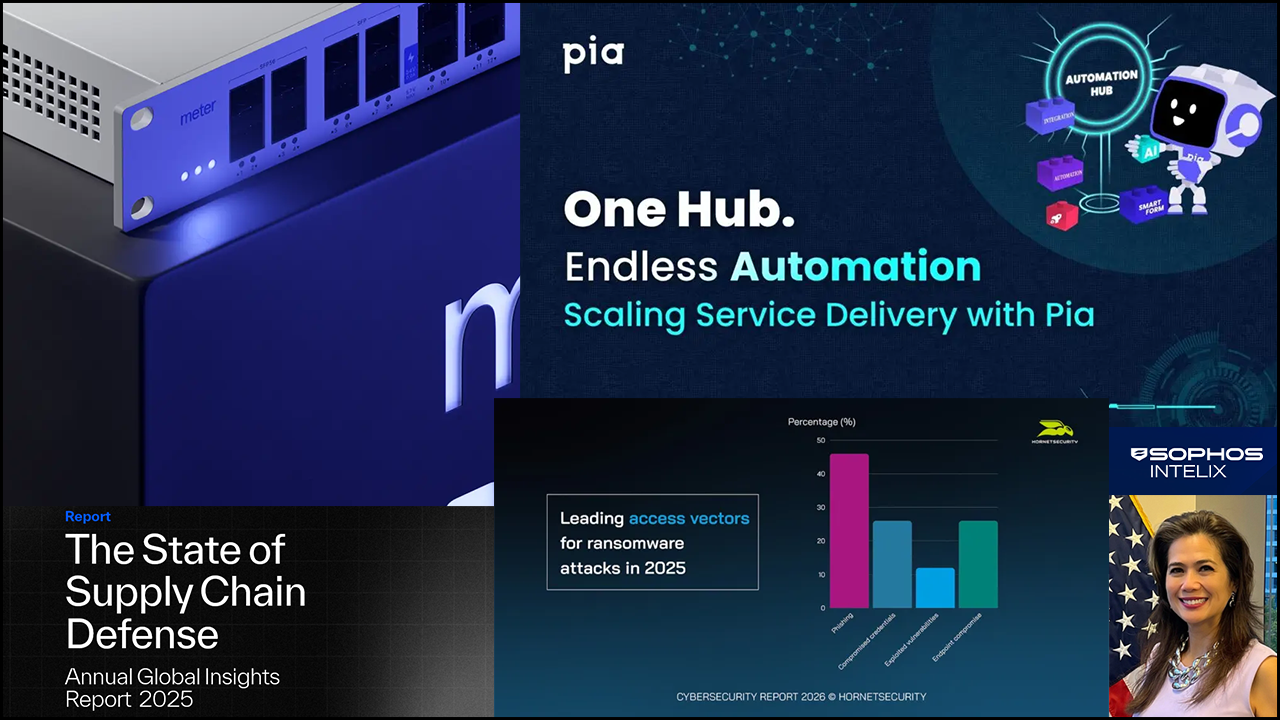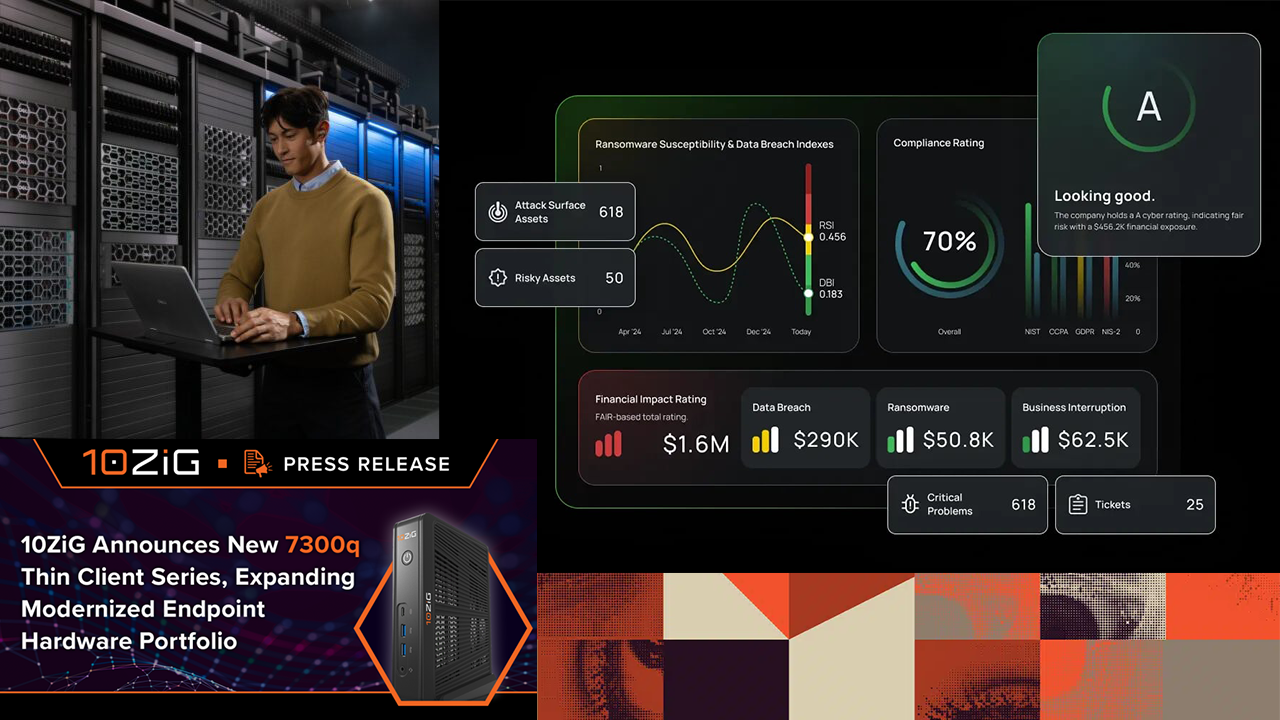From autonomous cars to smart homes to self-repairing jet engines, the Industrial Internet of Things (IIoT) is redefining how businesses operate. But game-changing applications aren’t limited to revolutionary innovations or high-tech manufacturing. Indeed, a variety of small and midsize businesses (SMBs) can benefit from cost-effective and easy-to-deploy solutions that address basic requirements.
Today, the combination of shrinking margins and the impact of the COVID-19 pandemic is forcing many master agents and channel pros to rethink their business models and expand their portfolios of offerings. As they assess their options, the potential of IoT solutions to help SMBs compete more effectively can’t be ignored.
Here are three examples of how channel pros can leverage IoT capabilities to help their customers.
Wireless Internet
Any business that operates in remote environments or uses vehicles or movable assets needs connectivity that doesn’t rely on wired network infrastructure. Recent innovations are creating new possibilities to address this longstanding requirement. Emerging IoT-enabled eSIM technology, which enables remote SIM provisioning of any mobile device, can link data-collecting sensors to analytical platforms to deliver robust connectivity to hundreds of global cellular networks. At the high end of the IIoT spectrum, this capability enables applications such as oil rig monitors that gauge wear and tear on equipment and smart pacemakers that track a patient’s heart function 24/7, regardless of where he or she travels.
At the SMB level, eSIM-based wireless connectivity can help a wide range of businesses operate more effectively and efficiently. A construction firm developing a new subdivision in an exurb of Omaha or Kansas City, for instance, needs on-site internet access to efficiently order supplies, get updates on customer orders, and communicate with municipal officials. Accessing existing MPLS networks is, at best, a problematic and expensive proposition. An eSIM solution, meanwhile, delivers flexible, easy-to-deploy, and affordable connectivity.
Retailers, for their part, can use eSIMs to support digital signage or set up a POS to process transactions from a mall kiosk or pop-up location. Healthcare clinics can use eSIMs to establish Wi-Fi hotspots in parking lots to administer COVID vaccines. Even the smallest business can benefit. An independent food truck operator, for example, can create an eSIM-enabled hotspot to efficiently process credit transactions and provide guests with free Wi-Fi service.
Key success factors for eSIM solutions include interoperability across multiple carrier networks, flexibility in terms of integrating into existing environments with minimal customization, and ease of deployment and access to customer support.
Fleet Management
The transportation and logistics industry faces a variety of growing competitive and regulatory pressures. Customers demand on-time deliveries and granular visibility into the supply chain. Shipments of goods such as wine, medicine, produce, and frozen goods require the maintenance and documentation of specific environmental conditions. Federal mandates call for detailed documentation on how far a vehicle travels and how long a driver sits behind the wheel over a given time period.
To gain the insight needed to address these demands, fleet managers can use IoT-enabled sensors and analytics for real-time monitoring of vehicles, drivers, and goods. This ability to closely track a vehicle’s location and movement underlies optimized logistics and just-in-time visibility across the supply chain.
In terms of technology options, the sweet spot lies in balancing immediate requirements with long-term strategy. As such, channel pros should aim for cost-effective solutions that move the needle and address a particular need, while at the same time laying a foundation that enables a wide range of operational improvements around vehicle maintenance, driver safety, and asset management. The key is to start small and grow. Avoid significant up-front investments, but not at the cost of limiting future possibilities. Plug-and-play capabilities that require minimal customization are also critical.
Fuel Monitoring
Gas station owners and operators face a basic problem: They struggle to get real-time information on fuel inventories. This creates a range of headaches. For one thing, rather than ordering deliveries when supplies are running low, they typically must resort to scheduling them at regular intervals. As a result, they carry excess inventory, which hurts cash flow, or run out of gas and lose sales. Analyzing past usage to predict future demand based on seasonality or holidays—and placing orders accordingly—also poses a challenge. In addition, operators are susceptible to fraudulent distributors who sell gas on the side and dilute deliveries with water.
Here again, IoT capabilities can help. Fuel monitoring solutions deploy data-collecting sensors directly in fuel tanks that link to consoles within the building. The console, in turn, links to a cloud-based analytical platform that provides online access to real-time inventory data, including the volume of water within the tank. By providing dashboard-based analytics into delivery and usage history, operators have a powerful tool to forecast supply and demand and support a wide range of improvements.
Bottom line: The Internet of Things is not (just) rocket science. By integrating IoT capabilities into their mix of service offerings, channel pros can deliver significant value to their SMB customers.
ARIEL CRUZ is vice president of channels at Claro Enterprise Solutions.












